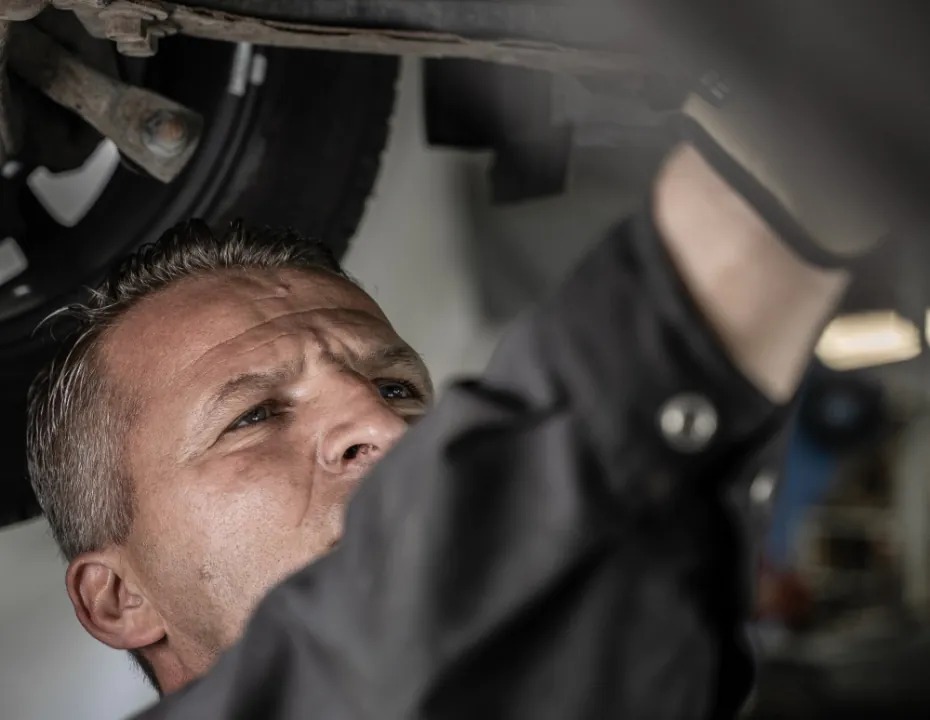Monday to Saturday - 8:00 -17:30

Brake pad squeal is more than just an annoying sound during braking—it’s a common frustration that can affect your driving experience and leave you questioning your vehicle’s performance. While that high-pitched noise doesn’t always indicate unsafe brakes, it’s a top concern for drivers everywhere, often leading to unnecessary stress, repeated shop visits, and doubts about your vehicle’s condition. Let’s break down how to address this issue and enjoy quieter, more reliable braking.
Why Brake Pad Squeal Happens
At its core, brake pad squeal comes from vibrations in the brake system. When the brake pad presses against the rotor, the friction creates resonant frequencies that escape as that familiar high-pitched sound. Common triggers include:
- Low-quality materials: Budget brake pads with excessive metal content lack the noise-dampening properties needed to reduce vibrations, making squeal more likely.
- Missing or poor shims: Shims are designed to absorb vibrations, but many affordable pads skip them entirely or use flimsy, short-lived versions that fail quickly.
- Incorrect installation: Even quality pads can squeal if installed improperly—dirty rotors, loose hardware, or rushed bedding-in processes all contribute to noise.
- Wear and tear: As pads age, uneven friction patterns or exposed wear indicators can create noise, signaling it’s time for attention.
The Impact of Squeal on Drivers
Squeal isn’t just a nuisance—it affects your relationship with your vehicle. Studies show that brake noise is one of the most common reasons drivers visit repair shops, often leading to unnecessary inspections or replacements. It can also cause anxiety, with many drivers worrying that the noise means their brakes are failing, even when they’re technically safe. Over time, unresolved squeal can erode trust in your vehicle’s reliability and lead to frustration every time you hit the brakes.
How to Stop Brake Pad Squeal for Good
The good news is that brake pad squeal is preventable with the right choices and care. Here’s how to keep your brakes quiet and reliable:
- Choose quality brake pads: Opt for pads made with premium materials like ceramic or graphite-infused friction compounds. These materials reduce vibrations and heat buildup, minimizing noise while providing consistent performance.
- Look for proper shims: High-quality brake pads come with multi-layer shims featuring adhesive backings. These shims act as vibration absorbers, stopping noise before it starts. Never skimp on pads that include these critical components.
- Prioritize proper installation: Even the best pads can squeal if installed incorrectly. Ensure your technician cleans the rotors thoroughly, tightens hardware to the right specifications, and follows proper bedding-in procedures to set the pads correctly.
- Stick with trusted brands: Choose brake pads from manufacturers with a reputation for testing and quality. Look for products that undergo noise testing and come with warranties, ensuring you’re getting a reliable, long-lasting solution.
Enjoy Quieter, More Confident Braking
Eliminating brake pad squeal transforms your driving experience. Quiet brakes reduce stress, give you more confidence on the road, and mean fewer unexpected trips to the shop. With the right pads and proper care, you can say goodbye to that annoying noise and focus on enjoying the drive.
Upgrade your brake pads today to experience the difference. Our selection of premium, noise-reducing brake pads is engineered for quiet performance and reliability. Find the perfect fit for your vehicle and enjoy smoother, quieter braking for miles to come.
